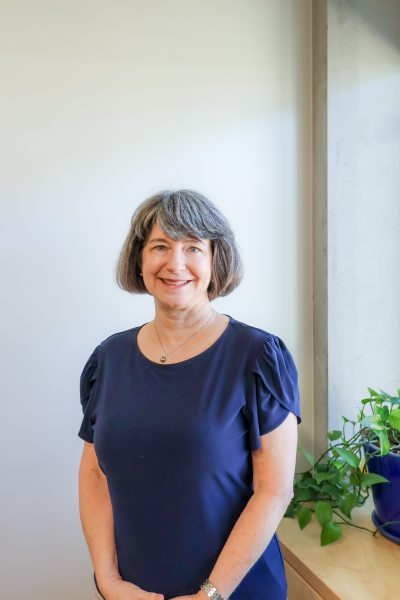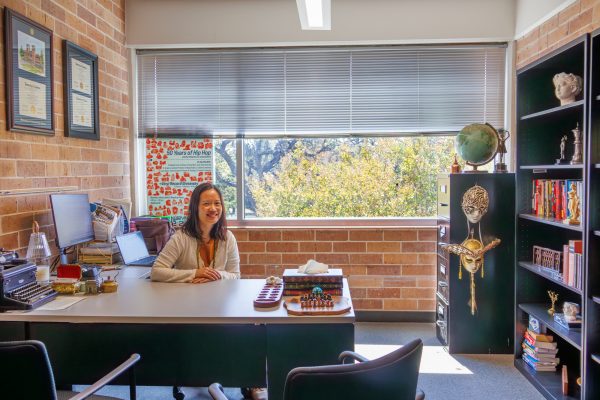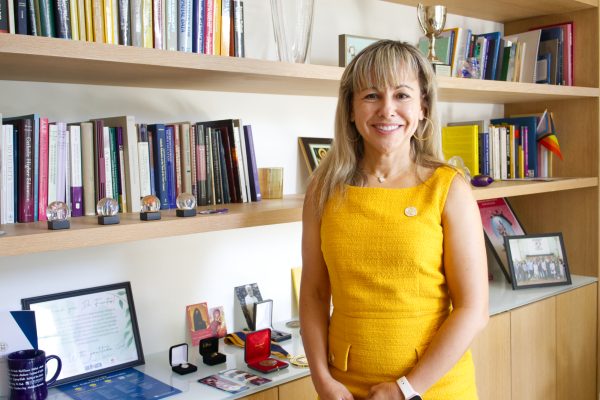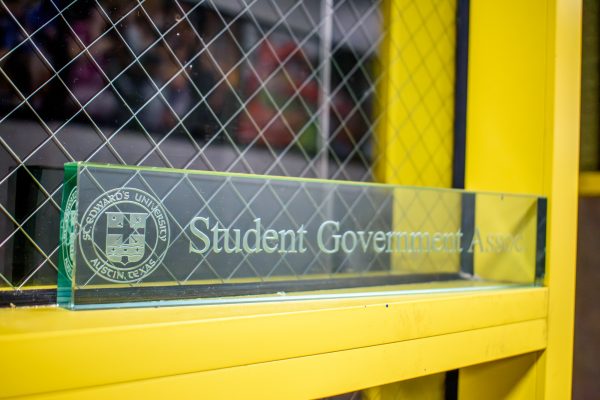New program helps students tackle Capstone classes
A new program at St. Edward’s University provides free one-on-one tutoring for Capstone and American Dilemmas students.
University Programs created the Mission Course Resource Center in February as a pilot program.
Capstone director Professor Cory Lock suggested the program to the Retention Committee, which then proposed it to Marianne Hopper, dean of University Programs, and Todd Onderdonk, American Dilemmas course coordinator. The program is an attempt to increase the number of students who graduate from St. Edward’s within six years.
“One of the things we’ve [the Retention Committee] looked at has been courses that students find challenging, and Capstone and American Dilemmas were two of these courses,” Lock said. “The primary goal of the MCRC is to serve these students who are struggling with Capstone and American Dilemmas and are at risk of having to take the course more than once.”
Sr. Donna Jurick, executive vice president and provost at St. Edward’s, approved the pilot program. Lock said that before the MCRC pilot program was created, many Capstone and American Dilemmas students could not afford tutors, so the goal of the MCRC is to offer free services to help students succeed in these classes and graduate.
Much like Writing Center appointments, MCRC sessions can be signed up for online. However, unlike Writing Center appointments, MCRC sessions last 45 minutes instead of 30, and sessions focus exclusively on content.
MCRC sessions are intended to help students in a different way than Writing Center appointments, but the two programs are meant to complement each other. While Writing Center instructors work with students on issues such as grammar, style and organization, and can help students with content, MCRC instructors don’t edit student papers. Instead, MCRC tutors focus on helping students realize the areas in which they need the most help — areas like understanding assignment requirements, developing topics and arguments, improving research strategies and finding supporting evidence.
In addition, the MCRC tutors have taught Capstone or American Dilemmas classes, so they have specific knowledge related to these courses that can help students. MCRC sessions also do not always focus on improving papers, but instead may involve, for example, fostering understanding of course concepts or public policy.
Professor Alex Barron and Professor Joanna Robinson, who both teach Rhetoric and Composition and Capstone classes, are the two MCRC tutors.
Barron and Lock both said the MCRC is not just for struggling students — it’s for all students who would like additional help.
“When we conceived [the program], it was for people who were struggling…but it’s often really high achieving students as well that come to us,” Barron said.
Many students have already participated in MCRC sessions.
Senior Angelica Garcia-Ditta said she found her session at MCRC helpful.
“I think it helped because it gave a different perspective on how to write a Capstone paper,” she said. “We were able to iron out any confusion I had with the writing process…at the MCRC, or at least in my session, we tackled specific issues with how to write a Capstone Paper, which is unique.”
Lock said that so far the turnout for the program has been good. The high demand for sessions at the beginning of the semester, when the center had only one tutor, allowed Lock to hire a second.
“We have generally been booked every week. Students have been enthusiastic about the center,” she said.
Barron said both students and faculty have responded positively to the program.
“Everyone from the students to the faculty is excited that there’s one more place to go,” Barron said.
The MCRC program will run this semester only. Afterward, the results will be examined in order to determine if it will continue in future semesters.
“We’ll need some hard data to see if more people are passing these courses,” Barron said.
Students can sign up for (or cancel) appointments online at http://academic.stedwards.edu/mcrc/. Tutoring sessions are held in Holy Cross Hall 106. Students should bring their handbooks, professor instructions, drafts, paper and a pen for taking notes.





